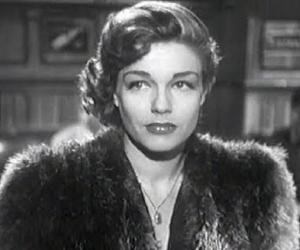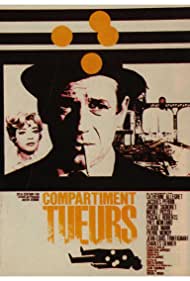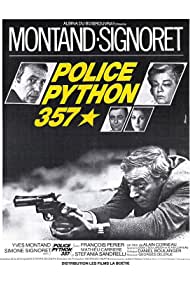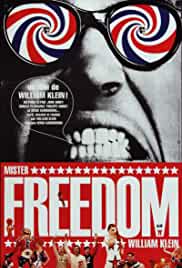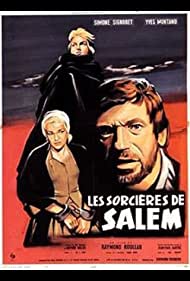Iconic French actress Simone Signoret’s more than four decade long-acting career began in 1942 with bit roles, mostly as an extra (and uncredited) in several films like ‘Bolero’, ‘Le prince charmant’, ‘Adieu Léonard’, ‘L'ange de la nuit’ and ‘Box of Dreams’. She soon began getting better roles and was often cast in the role of prostitutes and lovelorn young women. Among these was Yves Allégret directed 1945 film ‘Les Démons de l’aube’. Her first leading role came in 1948 in Allégret’s ‘Dédée d’Anvers’ wherein she played the role of Dédée, another sympathetic prostitute. The film made her a star. The 1950 Max Ophüls directed classic movie ‘La Ronde’ once again had her in a similar role of Leocadie. The movie, an adaptation of an Arthur Schnitzler play, brought her more attention. In 1952, her warm and sensitive portrayal of Marie 'Casque d'Or in Jacques Becker's crime romance drama ‘Casque d'or’ won her the ‘BAFTA Award’ for Best Foreign Actress. In the 1955 film ‘Les Diaboliques’, she played a cool and murderous schoolteacher/mistress Nicole Horner who plots to kill the cruel headmaster together with his meek wife. The crime horror drama movie is considered a classic and has an IMDB rating of 8.1/10 and a Rotten Tomato score of 96%. In the year 1957, she once again bagged the ‘BAFTA Award’ for Best Foreign Actress for playing the role of Elisabeth Procter in the joint Franco-East German drama film ‘The Crucible’.
Simone Signoret’s most celebrated performance came in 1958 when she was cast in the role of Alice Aisgill, a jilted married older woman in the English independent film ‘Room at the Top’. Her emotionally powerful performance brought her international acclaim and she went on to claim several prestigious awards for best actress including the ‘Academy Award’, ‘Cannes Film Festival Award’, ‘National Board of Review Award’ and ‘New York Film Critics Circle Award’. She also bagged the ‘BAFTA’ Award for Best Foreign Actress and even earned a nomination for Best Actress at the ‘Golden Globe Awards’. She was the first foreign actress to win an ‘Academy award’ and for the next four decades no other French actress received the honours. The success of the movie resulted in her getting many Hollywood offers; however, she turned down most of them for several years to work in France and England.
The decade of 1950s also saw her in several other films including ‘Manèges’, ‘Gunman in the Streets’ (all 1950), ‘Shadow and Light’ (1951), ‘Thérèse Raquin’ (1953) and ‘Death in the Garden’ (1956).
1960s began with Simone Signoret working in an episode of TV series ‘General Electric Theater’ (1960) and was followed by film roles in ‘Adua and Friends’ (1960), ‘Les Mauvais Coups’, ‘Famous Love Affairs’ (both 1961), ‘Term of Trial’ (1962), ‘The Shortest Day’, ‘The Day and the Hour’ and ‘Sweet and Sour’ (all 1963). The Peter Glenville directed drama film ‘Term of Trial’ was based on the 1961 novel of the same name and had her playing the role of the resentful wife of Laurence Olivier’s school teacher character Graham Weir.
In the 1965 war-romance-drama film ‘Ship of Fools’, her portrayal of the mysterious Spanish countess having an affair with the ship's doctor earned her nominations for best actress at the ‘Academy’, ‘BAFTA’ and ‘Golden Globe’ Awards. In 1966, her work in an episode of tv series ‘Bob Hope Presents the Chrysler Theatre’ won her a ‘Primetime Emmy Award’ for Outstanding Single Performance by an Actress in a Leading Role in a Drama. The following year, she earned two nominations at the ‘BAFTA’ – for the crime drama film ‘The Deadly Affair’ (Best Foreign Actress) and the thriller ‘Games’ (Best Supporting Actress). In 1969, she played the role of French Résistante Mathilde in Jean-Pierre Melville’s gripping wartime thriller ‘Army of Shadows’ (1969). The movie has an 8.1/10 IMDB rating and a 97% score on Rotten Tomatoes.
Her significant films in the next decade were ‘The Confession’ (1970), ‘Le Chat’ (1971), ‘Madame Rosa’ (1977) and ‘I Sent a Letter to My Love’ (1980). While her portrayal of Clémence Bouin, an ageing wife jealous of her husband's adoration of a stray cat, in Pierre Granier-Deferre’s film ‘Le Chat’ got her a ‘Silver Bear for Best Actress’ at the 21st Berlin International Film Festival, her work in the role of an aging woman who develops a maternal relationship with a young Arab orphan in the French drama film ‘Madame Rosa’ bagged her a couple of best actress awards – at the ‘César Awards’ and ‘David di Donatello Awards’.
All through the latter half of 1960s till her death in 1985, Simone Signoret worked in several other films. These include ‘The Sleeping Car Murders’ (1965), ‘Is Paris Burning?’ (1966), ‘The Sea Gull’ (1968), ‘L'Américain’ (1969), ‘Comptes à rebours’ (1971), ‘La Veuve Couderc’ (1971), ‘The Burned Barns’, ‘Rude journée pour la reine’ (both 1973), ‘La Chair de l'orchidée’ (1975), ‘Police Python 357’ (1976), ‘Judith Therpauve’ (1978), ‘The Adolescent’ (1979), ‘L'étoile du nord’, ‘Guy de Maupassant’ (both 1982) and ‘Thérèse Humbert’ (1983). Additionally, she also appeared in the television movie ‘A Hostage’ (1970) and television series ‘Madame le juge’ (1978). Her final work was as the narrator of the 1985 documentary ‘Des terroristes à la retraite’.
Throughout her career, Signoret never bothered about glamour and refused to be stuck in the trappings of stardom. As she grew old, she did not make an attempt to conceal her age or present a youthful image. Instead, with her exceptional talent, she created more memorable older characters and lent them the same warmth and sincerity as her early roles.


